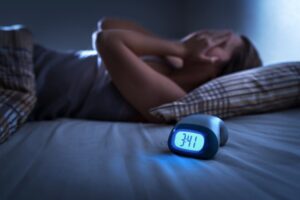
Sleep apnea is a common but serious sleep disorder in which breathing repeatedly stops and starts during sleep. The most common type, obstructive sleep apnea (OSA), occurs when the muscles in the throat relax excessively, blocking the airway. While it might seem like just a nuisance – loud snoring or feeling tired in the morning – untreated sleep apnea can lead to a range of severe health, cognitive, and emotional consequences.
Cardiovascular Strain and Increased Risk of Heart Disease
One of the most dangerous consequences of untreated sleep apnea is its impact on cardiovascular health. Each pause in breathing can lower oxygen levels in the blood, which puts stress on the cardiovascular system. Over time, this stress can contribute to high blood pressure, irregular heartbeats (arrhythmias), stroke, and even heart failure. Studies have shown that people with untreated sleep apnea are at a significantly higher risk for heart attacks and other heart-related issues.
Daytime Fatigue and Decreased Productivity
Because sleep apnea fragments your sleep cycle, it prevents you from getting restful, restorative sleep. This leads to chronic daytime drowsiness and fatigue. People often struggle to stay awake, concentrate, or complete daily tasks efficiently. In extreme cases, this sleep deprivation can result in accidents at work or while driving. Some studies compare the risk of driving while severely sleep-deprived to driving under the influence of alcohol.
Mental Health and Cognitive Decline
There is a strong connection between sleep and brain health. Untreated sleep apnea has been linked to mood disorders such as depression and anxiety. The constant fatigue and inability to concentrate can exacerbate feelings of irritability and emotional instability. Moreover, long-term oxygen deprivation and poor sleep quality can impair memory, decision-making, and even increase the risk of developing diseases like Alzheimer’s.
Metabolic and Weight Complications
Sleep apnea also interferes with the body’s metabolic processes. It can worsen insulin resistance, making it more difficult for people to manage or prevent type 2 diabetes. In turn, diabetes can also make sleep apnea worse – a dangerous cycle. Additionally, people with untreated sleep apnea often struggle with weight gain, as fatigue can reduce physical activity and increase cravings for high-calorie foods.
Strained Relationships
Sleep apnea doesn’t only affect the person with the condition—it can also disturb a bed partner’s sleep due to loud snoring or gasping for air throughout the night. This can lead to tension, frustration, and even sleeping in separate rooms, putting a strain on relationships over time.
How To Treat Sleep Apnea
Dentists have access to oral appliances that work by repositioning the jaw and tongue slightly forward, which helps keep the airway open and reduces snoring and apnea episodes. They are far less invasive than CPAP machines, which requires a cumbersome mask to be fitted over your face.
Sleep apnea is far more than just an annoying snore. Left untreated, it can have profound and far-reaching impacts on physical health, mental well-being, and overall quality of life. Luckily, there are treatments available like oral appliances that can improve your sleep, leading to a decrease in other health risks.
About the Author
Dr. Jeff Rodgers is a Diplomate of both the American Board of Dental Sleep Medicine and the American Sleep and Breathing Academy. He is a board-certified expert in sleep, as well as a 1995 graduate of the University of Alabama School of Dentistry. Dr. Rodgers and our team can outfit you with a custom oral appliance to improve your rest if you suffer from sleep apnea. Give our Dunwoody office a call at (770) 394-4310 or visit our website to schedule your appointment.
